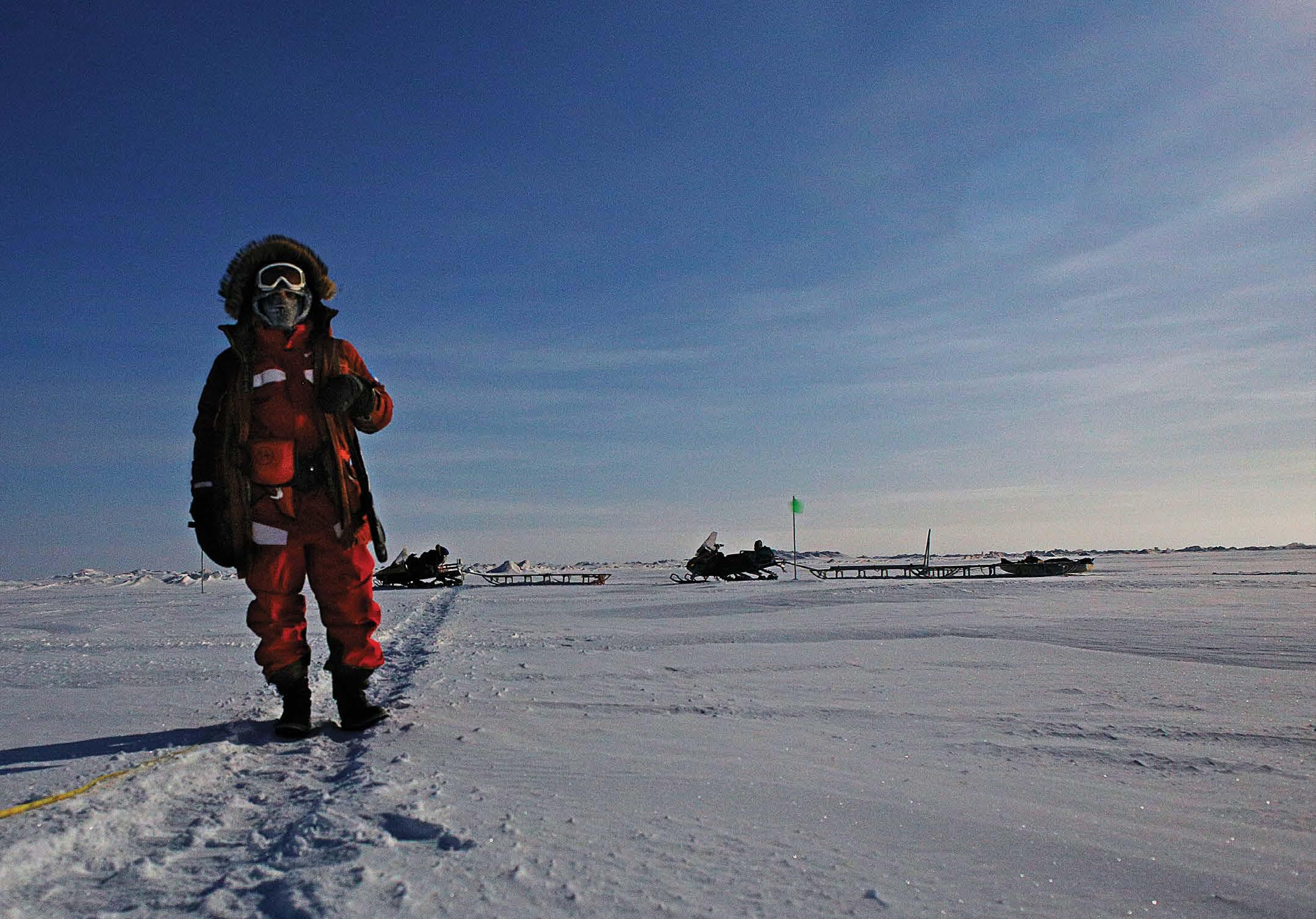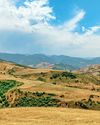
IMAGINE A WARM, summer day at Juhu Beach in Mumbai. Ocean waves crash along the shore; a balmy wind brings sea spray upon your face; the sun glimmers on the horizon. But what if the sun sets in Juhu and doesn't rise again for months? It's pitch dark all hours of the day and the sea freezes over? And you can walk, run or even drive your car across the frozen beach floating on top of an ocean. Sound surreal? Well, this is the kind of place where I've spent long stints of my professional life over the last decade or so. As a sea ice remote sensing scientist, I overwinter in the 24x7 polar darkness and frigid temperatures of six month-long nights in the Arctic and the Antarctic.
Living and working in the one of the most extreme and remote parts of the world was a happy accident. Like many middle-class Indians my age, I trained to be an electronics engineer and, after graduation, was placed in an IT company. It was dreary work and before long, I resigned. After a year-long struggle attempting to crack various PSU exams with no success, I ended up pursuing a Master's in Earth Observation Sciences from the International Institute for GeoInformation Science and Earth Observation (ITC) in the Netherlands, in collaboration with the Indian Institute of Remote Sensing, ISRO. That changed my life. I finished my degree in 18 months, and moved to the Alfred Wegener Institute for Polar and Marine Research in Germany as a research associate and started working on the Antarctic ice cap. A PhD in Geography from the University of Calgary, Canada, three more post-doctoral fellowships and 15 field seasons at the north and south Poles later, I am proud to be an experienced research scientist.
This story is from the {{IssueName}} edition of {{MagazineName}}.
Start your 7-day Magzter GOLD free trial to access thousands of curated premium stories, and 9,000+ magazines and newspapers.
Already a subscriber ? Sign In
This story is from the {{IssueName}} edition of {{MagazineName}}.
Start your 7-day Magzter GOLD free trial to access thousands of curated premium stories, and 9,000+ magazines and newspapers.
Already a subscriber? Sign In

Demonstrators by Krishna Reddy
1968 Multicolour viscosity, Print on paper

Notes from Grief Camp
Every summer, more than a hundred children come together to spend a weekend swimming, climbing and canoeing. They also learn to deal with death

Six Places Cheese Lovers Should Visit
Ancient caves, monasteries, and other must-sees for fromage fans

THE LAND OF SUPERCEN TENARIANS
A remote region of Azerbaijan claims to have many extremely long-lived residents. What is their secret, or is it just a myth?

The Whistle Blowers
My grandparents had a distinctive way of communicating

"THE NEXT AIRCRAFT WILL CRASH ON LANDING"
THE JET WAS ALMOST OUT OF FUEL. THE PILOTS' ONLY OPTION WAS A MANOEUVRE NO ONE HAD EVER ATTEMPTED.

The Secrets in our Genes
Genomic sequencing tests can reveal much about your unique physiology. But are they worth it?

GOOD NEWS FROM AROUND THE WORLD
MENTAL HEALTH When her son was arrested last year, Tambudzai Tembo's mind went to dark thoughts of suicide.

Into the Inferno
A gas station owner has seconds to react when a car crashes into a gas pump

THE CLIMATE CHANGERS
THESE PLACES ARE LEADING THE WAY TO A FUTURE FREE OF FOSSIL FUELS